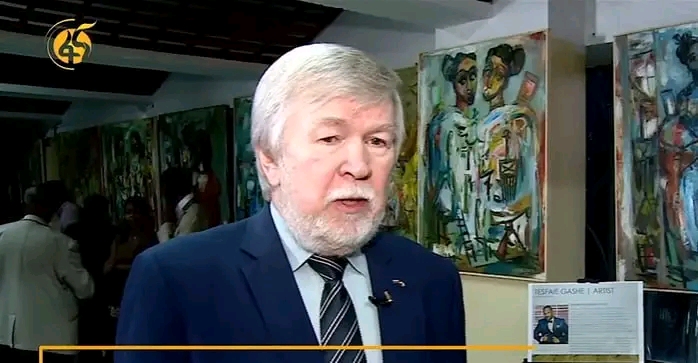Ethiopia’s nuclear energy vision gains momentum with Russian partnership
Addis Ababa, November 6, 2025 (FMC) – Russian Ambassador to Ethiopia Evgeny Terekhin has reaffirmed his country’s firm commitment to advancing cooperation with Ethiopia in the peaceful development of nuclear energy.
Speaking to Fana Media Corporation, Ambassador Terekhin underscored that Russia remained fully engaged in supporting Ethiopia’s nuclear power aspirations, building on the collaboration already underway between the two nations.
He indicated that Russia and Ethiopia would work together to make Ethiopia’s nuclear power development a reality, emphasizing that Russia’s extensive expertise and highly trained professionals would continue to assist Ethiopia in translating its nuclear program into practical outcomes.
The Ambassador noted that the partnership reflects both countries’ shared vision of using science and technology to accelerate sustainable development and energy self-sufficiency.
He described Ethiopia’s pursuit of nuclear energy as a forward-looking step that aligns with its broader inclusivel prosperity agenda.
Political researcher Miftah Mohammed said that the reaffirmation of cooperation with Russia demonstrates Ethiopia’s growing commitment to technological progress and diversification of its energy sources.
He added that developing nuclear capacity would generate long-term benefits for Ethiopia—boosting power generation, attracting investment, strengthening industrial growth, and facilitating knowledge transfer.
Miftah highlighted that Russia’s proven record in nuclear technology makes it a key strategic partner for Ethiopia, stressing that the existing framework between the two countries provides a strong foundation for successful implementation.
He also pointed to Ethiopia’s ability to deliver on major national projects, such as the Grand Ethiopian Renaissance Dam, as evidence of its institutional readiness to manage complex programs.
Nuclear physicist Ruqia Ali reaffirmed that nuclear energy remains one of the cleanest and most efficient energy sources after hydropower.
She explained that, beyond power generation, the peaceful use of nuclear technology could significantly enhance sectors such as agriculture, healthcare, and research—contributing to Ethiopia’s sustainable development goals.
It is noteworthy that Ethiopia has been steadily institutionalizing its nuclear energy ambitions by establishing the Ethiopian Nuclear Energy Commission in October 2025, tasked with coordinating the peaceful use of nuclear technology across energy, industry, healthcare, and research sectors. At the academic level, Addis Ababa Science and Technology University (AASTU) has launched a Center of Excellence in Nuclear Technology, designated as an African hub for nuclear research, training, and non-energy applications.
During Prime Minister Abiy Ahmed’s recent visit to Moscow, Ethiopia and Russia signed an Action Plan in September 2025 to advance the planning and eventual construction of a nuclear power plant, which includes a roadmap, feasibility study, and working groups to guide implementation. These developments underscore Ethiopia’s commitment to building local capacity, institutional readiness, and advancing peaceful nuclear energy development in collaboration with Russia.

